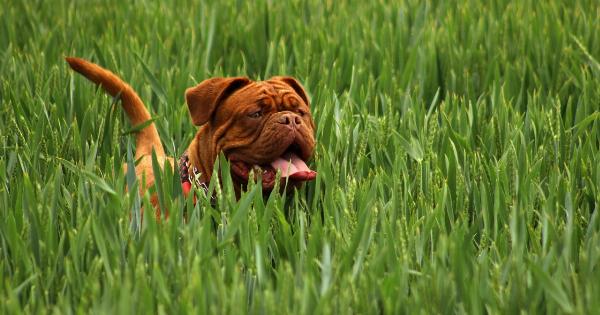Small dogs have always garnered mixed reactions from people. Some adore them for their cuteness and compact size, while others view them as yappy and high-maintenance.
But are these perceptions warranted? Are small dogs truly misunderstood or more complex than they seem? In this article, we aim to delve deeper into the world of small dogs and uncover the truth behind their behavior, temperament, and overall complexities.
The joys of owning a small dog
Small dogs, despite their petite stature, come with a plethora of joys for their owners. One of the significant advantages is their size, which makes them highly portable and easier to transport than larger breeds.
Small dogs are perfect companions for people living in apartments or homes with limited space, as they require less room to move around.
Furthermore, small dogs are often considered excellent family pets. Due to their size, they can easily integrate into households with children, and their playful nature brings smiles and laughter to everyone around them.
Their small size also means less food consumption, making them an ideal choice for pet owners on a tight budget.
The misconceptions about small dogs
Unfortunately, small dogs have been unfairly burdened with a variety of misconceptions over the years. One of the most common misconceptions is that small dogs are always yappy and noisy.
While it is true that some small breeds may be prone to barking more frequently than others, it is not a universal trait among all small dogs. Proper training and socialization play a significant role in curbing excessive barking.
Another misconception is that small dogs are fragile and delicate. While they may appear fragile due to their size, many small dog breeds are surprisingly resilient and can endure vigorous physical activities.
It is essential to provide them with the appropriate exercise and not underestimate their capabilities solely based on their size.
The complex nature of small dogs
Small dogs, just like their larger counterparts, possess unique personalities and complex behaviors that make them intriguing. Despite their small stature, many small dog breeds exhibit a strong-willed and confident nature.
They are often fearless, proudly taking on challenges and proving their mettle.
Furthermore, small dogs are incredibly intelligent and require mental stimulation to prevent boredom. Many small breeds excel in activities such as obedience training, agility, and even advanced tricks.
Engaging their minds helps channel their energy positively and prevents behavioral problems that might arise from boredom.
Small dogs are also known for their loyalty and affection towards their owners. They tend to form deep bonds and can make incredibly devoted companions.
This loyalty, combined with their intuitive nature, allows them to become excellent therapy dogs or emotional support animals.
Common challenges with small dogs
While small dogs come with their fair share of advantages, they also present certain challenges that can be attributed to their size.
House-training, for example, can be slightly more complicated with small dogs due to their higher metabolism and smaller bladder capacity. Consistent and patient training is key to overcoming this challenge.
Additionally, small dogs can be susceptible to injury if not handled properly. Pet owners must be cautious while playing or engaging in physical activities with their small dogs to avoid accidentally causing harm.
Children should also be educated on appropriate ways to interact with small dogs to prevent accidental injuries.
Choosing the right small dog breed
When considering owning a small dog, it is crucial to choose a breed that aligns with your lifestyle and preferences. Some small dog breeds are more energetic and require ample exercise, while others are content with a daily walk and some playtime.
Researching different breeds, their temperaments, and exercise needs will help you find the perfect match.
Other factors to consider include grooming requirements, shedding tendencies, potential health issues prevalent in certain breeds, and compatibility with other pets or children in the household.
Consulting with reputable breeders or rescue organizations can provide valuable insights and guidance in selecting the right small dog breed for you.
Tips for small dog owners
If you already own or are planning to adopt a small dog, here are some essential tips to ensure a happy and fulfilling pet-owner relationship:.
1. Training and socialization:
Invest time and effort in training your small dog, including basic obedience and commands. Socialize them from a young age to expose them to various people, animals, and environments, helping them develop into well-rounded dogs.
2. Provide mental stimulation:
Small dogs are intelligent and thrive on mental stimulation. Use puzzle toys, interactive games, and training sessions to engage their minds and prevent boredom-induced behavioral issues.
3. Be mindful of their exercise needs:
While small dogs require physical activity, their exercise needs may vary depending on the breed. Some small breeds are content with short walks, while others might require more vigorous exercise. Tailor their exercise routine to their specific needs.
4. Prioritize dental hygiene:
Small dogs are prone to dental problems due to their small mouths and crowded teeth. Establish a regular dental hygiene routine, including brushing their teeth and providing appropriate chew toys to promote oral health.
5. Practice proper nutrition:
Consult with your veterinarian to determine the best diet for your small dog. Ensure they receive the required nutrients in appropriate portions to maintain a healthy weight and overall well-being.
6. Manage their surroundings:
Small dogs can be more susceptible to cold weather, so provide them with warm bedding and protective clothing during colder months.
Additionally, secure your home and yard to prevent potential escape routes or hazards that could pose a danger to your small dog.
7. Regular grooming and healthcare:
Regularly groom your small dog, including brushing their coat, trimming nails, and cleaning their ears. It is essential to keep up with routine vet visits to monitor their health and address any potential issues promptly.
In conclusion
Small dogs are not simply diminutive versions of larger breeds. They possess unique qualities, complex behaviors, and delightful personalities that make them a beloved choice for pet owners.
By understanding and addressing the misconceptions surrounding small dogs, pet owners can provide them with the training, care, and love they deserve.























